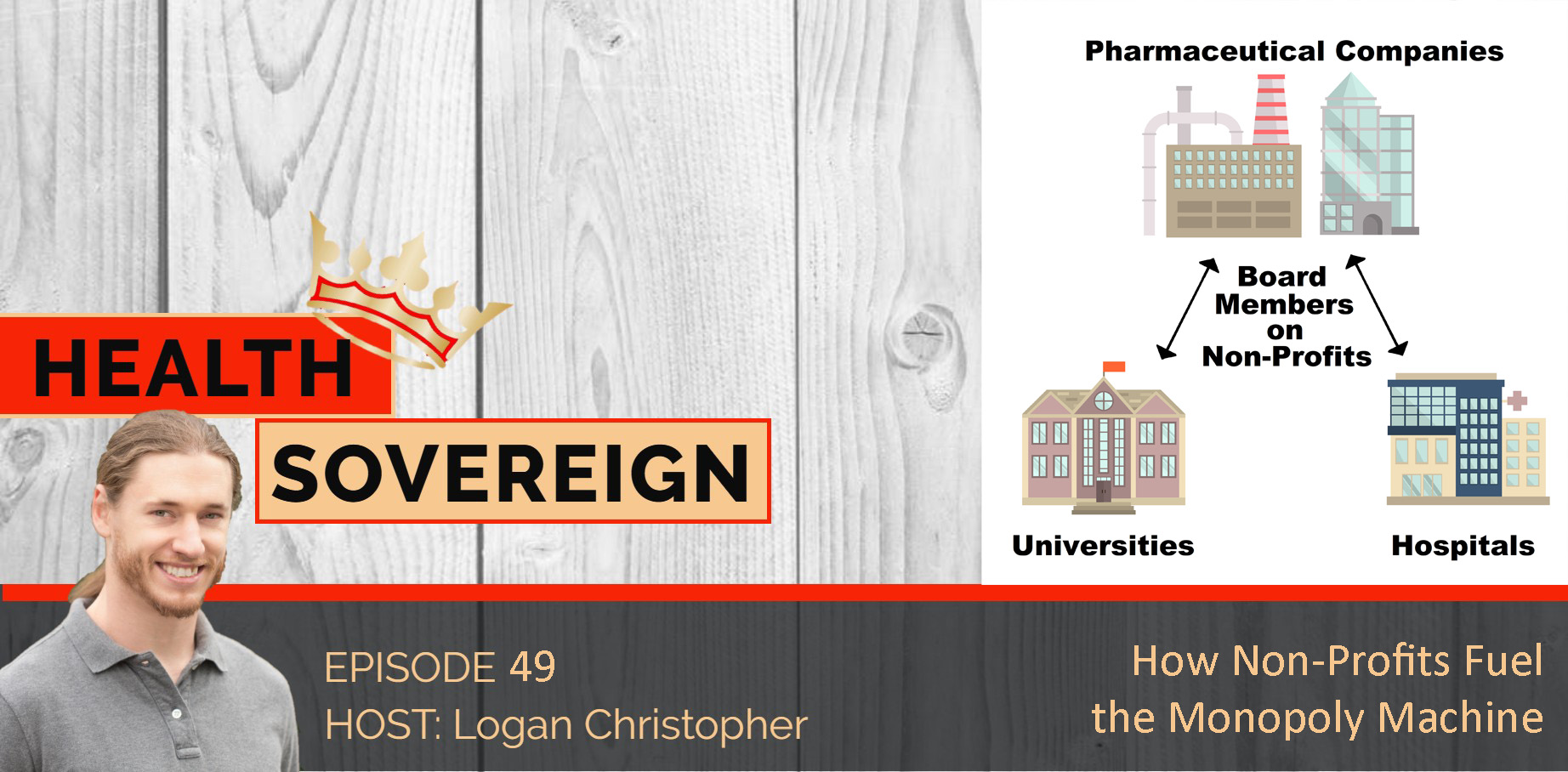Non-profit. A charity organization must be doing good in the world, right? After all, they’re not making money.
…if only that naïve statement were true.
Because many people believe it so, it is all the more possible to use these entities for other than benevolent aims such as lining pockets.
Andrew Dunn at BioPharma Dive did a couple of great articles in 2017 about “the opaque web of connections between pharmaceutical companies and nonprofit health systems at the highest levels of power.”
This is another layer of the interlocking directorate. While we looked at it with media and Google, here we see it involved with non-profits.
Did you enjoy the podcast? Let me know by leaving a short review and be sure to hit that subscribe button so you don’t miss any future episodes!
Click the link below to see written articles and references.
Medical Monopoly Musings #53
How Non-Profits Fuel the Monopoly Machine
Non-profit. A charity organization must be doing good in the world, right? After all, they’re not making money.
…if only that naïve statement were true.
Because many people believe it so, it is all the more possible to use these entities for other than benevolent aims such as lining pockets.
Andrew Dunn at BioPharma Dive did a couple of great articles in 2017 about “the opaque web of connections between pharmaceutical companies and nonprofit health systems at the highest levels of power.”
This is another layer of the interlocking directorate. While we looked at it with media and Google, here we see it involved with non-profits.
BioPharma Dive found that 12 of 19 of the largest pharma companies had board members on non-profits involved in healthcare. As you’ll come to see this is mostly hospitals and universities. (Influence where people work and learn…)
Understand it was more common than not. And here's the added fun. The majority of these conflicts of interest (16 of 22) were NOT disclosed on websites, biographies, etc. They flew under the radar.
Meanwhile each of the people involved was making on average $475,000 in annual compensation for their board positions, while holding an average of $1.7 million in stock for the companies.
Do you think that these conflicts of interest ever sway policy that benefits the companies? Especially if it is not public knowledge? Again, you’d be naïve to say it never takes place.
Here’s a partial selection from the Dunn’s article linked below. Look at the Pharma companies you’ve heard of. Look at the non-profits involved.
AbbVie
Robert Alpern – Yale School of Medicine’s Dean
Eli Lilly
Marschall Runge – University of Michigan Medical School's Dean
Gilead Sciences
Kevin Lofton - CEO of Catholic Health Initiatives
Richard Whitley - Associate director for University of Alabama
GlaxoSmithKline
Laurie Glimcher - President and CEO of the Dana-Farber Cancer Institute
Jesse Goodman - Director of Georgetown University's Center on Medical Product Access, Safety and Stewardship
Johnson & Johnson
Mary Beckerle - CEO of the Huntsman Cancer Institute at the University of Utah
Mark McClellan - Director of the Margolis Center for Health Policy at Duke University
A. Eugene Washington - President and CEO of the Duke University Health System
Merck
Thomas Cech - Director of University of Colorado, Boulder's BioFrontiers Institute
John Noseworthy - CEO of the Mayo Clinic
Novartis
Charles Sawyers - Chair of Memorial Sloan Kettering's Human Oncology and Pathogenesis Program
Pfizer
Dennis Ausiello - Director for Massachusetts General Hospital's Center for Assessment Technology and Continuous Health
It’s not just about the influence of the person, but how that control can ripple out.
"These are leaders in medicine. These are people who can squash your career in no time," says Walid Gellad, the Director of the Center for Pharmaceutical Policy and Prescribing, University of Pittsburgh. "There are rules being put in place for physicians, but no one is paying attention to the folks making those rules."
Gellad published a paper in JAMA that showed 40% of the 50 largest pharmaceutical companies had at least one academic medical center leader on their board.
This subject has almost zero light shined on it yet is a crucial piece in the widespread control of the medical paradigm.
References:
https://www.biopharmadive.com/news/memorial-sloan-kettering-scandal-raises-questions-for-pharmas-biggest-corp/540750/
https://www.biopharmadive.com/news/who-are-the-22-pharma-board-members-who-also-lead-healthcare-nonprofits/543144/
https://jamanetwork.com/journals/jama/fullarticle/1853147
